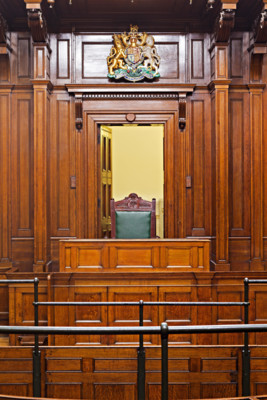Entry,Search,and Seizure
Policy for Reporting Wrongdoing
Within the Metropolitan Police Service
'doing the right thing'
Known in other industries as
'whistleblowing' this policy was published
in June 2000,the purpose of the policy
is to give Clear Direction,to members of
the MPS,regarding reporting wrongdoing.
This policy sets out ways in which individuals
within the MPS,can report suspected
wrongdoing.
The support mechanisms within the policy
include support for any member of staff,who
is a witness or alleged victim in an internal
investigation,or witness in a 'public complaint.

The term 'wrongdoing' includes
Criminal Offences,Miscarriages of justice,
Breaches of Legal Obligation,Malpractice,
Unethical Behaviour,Support Staff Misconduct
Breaches of the Police Code of Conduct,
Deliberate Concealment of Information in
respect of the (above)
The Policy applies to all staff,who all
have clear responsibility to report
wrongdoing
OCU Commanders
All Line Managers for receiving reports
of wrongdoing and implementing policy
and procedures

Investigating Officer
Personnel Manager
Directorate of Professional
Standards
MPA Directorate of Internal Audit
Occupational Health
all are required to be informed
about incidents of wrongdoing.
WHISTLEBLOWING RIGHTS
Police Officers along with NHS
employees,have been covered
by legislation on protected
disclosures,since 2004
"detrimental treatment is prohibited
of a worker,including dismissal,
if the reason or principal reason
is because the worker has made
a Public Interest Disclosure".
POLICE OFFICERS 'Rights'
Police Officer's have few
employment law rights,but
the Officer
has a right of Appeal to a
Police Appeals Tribunal against
any disciplinary finding and/or
outcome imposed at a
disciplinary hearing
Police Officers are excluded
from the Statutory Right to make
claims for Unfair Dismissal.
POLICE POWERS of
ENTRY,SEARCH and SEIZURE.
The Police do have powers to
enter and search premise,either
to seize evidence of an offence,
or to arrest a person.
1) Search the premises under
the 'authority of a warrant'
2) search the premises
'without the authority of a warrant'
PACE 1984,allow in some cases
'non-warranted' police staff
may enter and search premises
to seize evidence of an offence
Any search of a premises,whether
under a warrant or not,must
follow a procedure
and be conducted in accordance
with Code B of the
PACE Code of Practice
if it is necessary to search a
person during a premise search,
again there are set procedures
in place for that particular situation.
searching of premises,whether
under the authority of a warrant
or not,
Police Officers must remain
mindful and take into consideration
the European Convention on
Human Rights.Article 8
1) Everyone has the right to
respect for his private and
family life,home and his
correspondence.
2) there shall be no
interference by a public
authority with the exercise
of this right except such
as is in accordance with
the law
and is necessary in a
democratic society in the
interest of national security,
public safety or the
economic well being
of the country,
for the prevention of
disorder or crime,for the
protection of health or morals,
or for the protection of
the rights and freedoms
of others.
Search of Premises
Under the Authority of a Warrant.
How the Search must be
Conducted.
Seizure and Retention of Property.
Search of the Premises Without
the Authority of a Warrant.
Search the Premises after a
PERSON HAS BEEN ARRESTED
Search to ARREST A PERSON
Search the premises with the
Consent of the Occupier.

